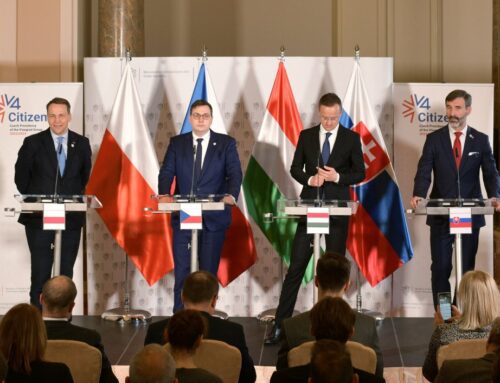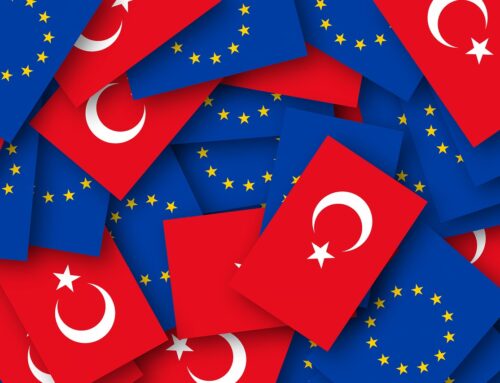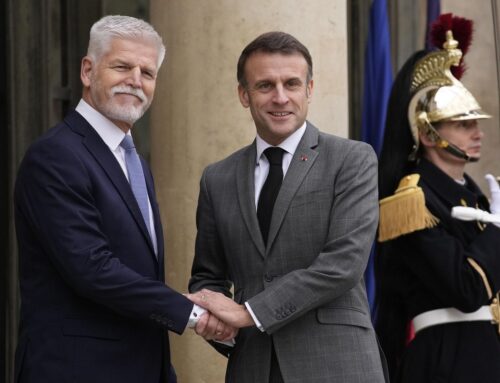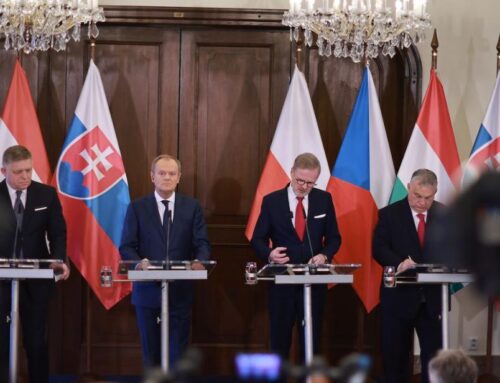liban
Autor foto: Domena publiczna
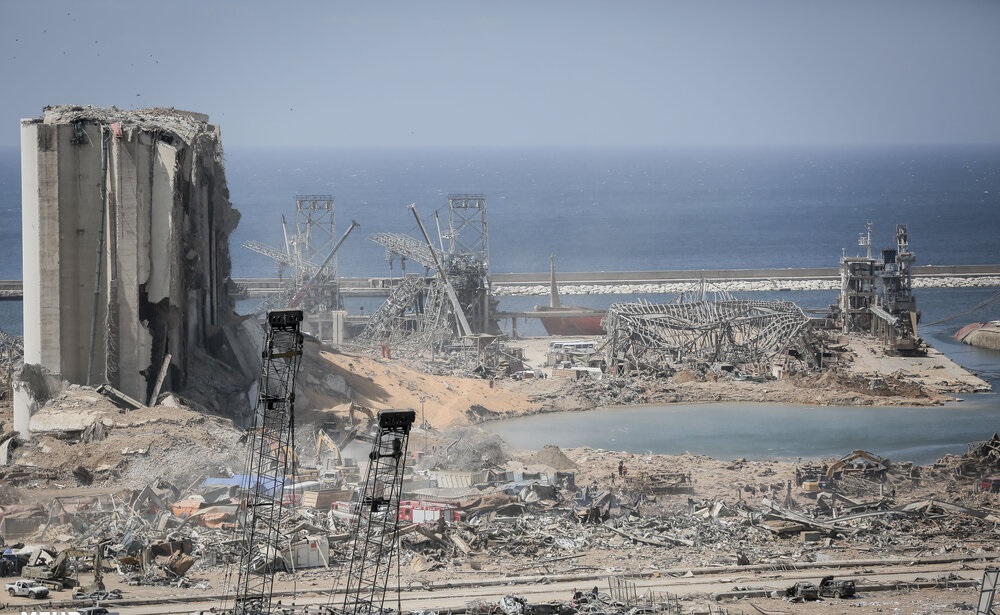
Lebanon under existential threat
March 14, 2024
Author: Witold Repetowicz
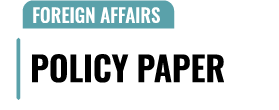



liban
Autor foto: Domena publiczna
Lebanon under existential threat
Author: Witold Repetowicz
Published: March 14, 2024
Pulaski Policy Papers no. 5, 14th March 2024
Following the October 7, 2023 Hamas attack on Israel, Lebanon is being dragged into a war that could bring complete destruction to the country. Moreover, Lebanon’s confessional equilibrium is under threat, making the end of the unique Christian-Muslim partnership that defines the country more likely. One of the key factors that contribute to this problem is the presence of about two million Syrian refugees in Lebanon.
Since 2019, Lebanon has experienced a disastrous economic crisis, which in 2022 was accompanied by a paralysing political deadlock. There is no president, and the government is meant to play only a caretaker role (in reality, it exceeds its powers) as it has yet to receive a vote of confidence in the parliament. Prime Minister Najib Mikati’s party failed to gain any seats in Lebanon’s parliament in the 2022 elections. Since Hezbollah (with Amal as a junior ally) managed to take all Shia seats in parliament, the 87-year-old leader Amal Nabih Berri did not face any competition in his reelection as speaker of the parliament. These factors allowed Hezbollah to gain full control over the government through the Berri-Mikati duo.
Confessional system and rise of Hezbollah
Lebanon is proud of its unique character as a country where various religions coexist. Nevertheless, one should not forget that this coexistence was not always peaceful, and the Lebanese confessional system has downsides. After World War I, Lebanon emerged under the French protectorate with Western-oriented Maronites as the dominant power. At that time, Christians constituted the slight majority of Lebanon’s population. Unlike Muslims, they did not adhere to an Arab identity. Before gaining independence in 1943, a National Pact was agreed upon, introducing the power-sharing system based on confessionalism. The president and chief of the army were both Maronites, the prime minister was Sunni, and the parliament speaker was Shia. This equilibrium was then shaken by the influx of Palestinian refugees, generally Sunni with strong Arab identity, who fled to Lebanon (and other nearby Arab countries) after the State of Israel was established. Tensions between Christians, especially Maronite nationalists from the Kataeb Party, and Palestinian militants from the Palestinian Liberation Organization (PLO), supported by Panarabists and Sunnis, led to the outbreak of a disastrous civil war that lasted from 1975 to 1990. PLO was, in the meantime, expelled from Lebanon, but during the war, Shias, who were the least empowered group, started to organise themselves by establishing a pro-Syrian Amal movement followed by Iran-linked Hezbollah. After the war ended, the confessional power-sharing system was adjusted in the 1992 Taif Agreement. While the major principles remained in the National Pact, the Christian majority in the parliament was reduced to 5%.
After the war, with Syrian forces occupying Lebanon till 2005 and Israeli troops controlling a border belt in South Lebanon till 2000, Hezbollah remained the only armed militia. This organisation named itself “resistance” and made Israeli occupation (after 2000, it referred to Israel’s control of Shebaa Farms) an excuse for its militant character. Its persistent attacks against Israel led to a war in 2006, which, in fact, was not a Lebanese-Israel war as the Lebanese Army generally did not participate in combat; rather, it was a Hezbollah-Israel one. It ended with the unanimous adoption of UNSC resolution 1701 that ordered, among other things, the disarmament of Hezbollah and the termination of any military presence other than Lebanon Army and UNIFIL in Lebanon south of the Litani River. However, these provisions were not implemented, and Hezbollah presented itself as the winner, thus strengthening its power in Lebanese politics. Through intimidation, physical elimination of Shia political rivals, and eventually the subordination of Amal, Hezbollah gained a monopoly in the Shia community in Lebanon.
In November 2007, Emile Lahoud’s presidential term ended. It took six months to reach the Doha Agreement, but thanks to international mediation, former Chief of the Army Michel Sulaiman was elected president. But in 2014, after Sulaiman’s term was over, the crisis reemerged, and it took 29 months for a new president, Michel Aoun from the Free Patriotic Movement (FPM), to be elected. This time, the deadlock was overcome due to the alliance between FPM and Hezbollah. This led to the further empowering of Hezbollah, which organised a state within a state, with its own social services, schools, hospitals, etc., constantly being supported by Iran (with arms and financial flows). Hezbollah also benefited from the crumbling of state institutions and their inability to carry out their duties due to mounting corruption and a semi-feudal system of nepotism. The Lebanese democracy system is based on prominent families such as the Druze Jumblatt family, Sunni Hariri, Maronite Gemayel, Aoun, and Frangieh, inheriting their positions. Another contributing factor to Hezbollah’s rise to power was problems inside the Christian and Sunni communities.
Lebanese Sunnis were traditionally under the influence of Saudi Arabia, and the most prominent political family in this group is the Hariri family. Rafic Hariri was prime minister twice, but in 2005, he was assassinated— in 2020, a UN-established Special Tribunal for Lebanon found Hezbollah-linked operatives guilty of his assassination. Rafic Hariri’s son Saad, born in Saudi Arabia with dual Saudi and Lebanese citizenship (like his father), was then prime minister from 2009-2011 and again from 2016-2020. After he received substantial financial support from Saudi Arabia made on his promise to crush Hezbollah, Saad not only failed to deliver on this promise but also made deals with FPM and Hezbollah in the business field. He was brutally forced to withdraw from politics. Saudis then shifted their attention to other issues, such as internal reforms and the war in Yemen, which made Sunnis “orphaned” in the 2022 elections. A Saudi-Iranian reconciliation in 2023 raised some hopes in Lebanon but brought no effect.
As for Christians, they are extremely divided. On one side, the Lebanese Forces party is led by Samir Geagea and the Kataeb Party is led by the Gemayel family; they are in strong opposition to Hezbollah and any Iranian influence in Lebanon. On the other side is the FPM, which has a history of cooperating with Hezbollah (FPM broke with Hezbollah after the 2022 elections, but the other parties are suspicious of a possible new deal reemerging between them). These are just the major groups. Christian politics in Lebanon is particularly shaped by the loyalties and feuds of prominent families. The present leader of FPM is Michel Aoun’s son-in-law, Gebran Bassil, who hoped to be his successor but failed to secure Hezbollah’s support for his candidacy. At the same time, the USA sanctioned Gebran Bassil for corruption and his cooperation with Hezbollah. The Lebanese Forces party, Kataeb party, and anti-sectarian Christians rejected any possibility of supporting FPM candidates, especially Bassil. As a result, independent candidate Jihad Azour, an internationally recognised economist, was agreed upon as a common Christian candidate. However, he failed to gain sufficient support in parliament as Hezbollah blocked his election. Berri’s position as speaker allows him to manipulate parliamentary convening sessions, which in turn helped Hezbollah block Jihad Azour from being elected president. Hezbollah instead pushed the candidacy of Soleiman Frangiyeh, who is connected to the Assad family as he grew up with them after his father was killed in a 1978 massacre committed by a squad linked to Kataeb as retaliation for collaboration with the Syrian regime. The Soleiman Frangiyeh party holds only one seat in Lebanon’s parliament, and for most Christians, the Frangiyeh election would mean the formalisation of the takeover of the country by Hezbollah. It is also clear that Hezbollah does not need to break any deals as the present situation is favourable.
Impact of the war in Gaza and the threat of escalation
According to the constitution, the president appoints the prime minister. Therefore, as long as there is no president, no new prime minister can be elected. This means that both Christians and Sunnis lost their key instruments of influence on politics— since all Mikati’s strategic decisions needed Hezbollah’s clearance. To make things worse, other key Christian posts were vacant, including Governor of the Central Bank and Chief of the Army. As for the latter position, Gen. Joseph Aoun’s term expired in January after he reached retirement age, but parliament managed to extend his term by one year despite opposition from FPM— a result of personal conflicts with Bassil. In the ongoing situation, FPM has suggested that it is impossible to rule Lebanon without dealing with Hezbollah and wants to achieve a compromise in hopes that it will bring about the election of Bassil.
On the other hand, the opposition Christian groups have insisted that it would be better to have no president than to have one who is dependent on Hezbollah’s support. They are awaiting a bigger deal after the war in Gaza, which they hope will solve the problem by exerting pressure on Iran. However, there is also fear that Lebanon will be sold out by foreign powers to Hezbollah in exchange for Hezbollah stopping its attacks on Israel. Those who regard such an option as viable recall that in 1990, the USA made a deal with Syria’s leader, Hafez Assad; in exchange for Syria’s participation in the anti-Iraq coalition, the USA accepted the Syrian occupation of Lebanon.
With regard to the war in Gaza, the Lebanese are generally sympathetic to Palestinians on humanitarian grounds, and a majority of them also support Palestine’s cause. However, there are some Lebanese who can not forget the PLO’s role in the Lebanese civil war and are more worried about the potential strengthening of Hezbollah’s position in Lebanon if Hezbollah presents itself as a winner rather than tying itself to Palestine’s fate. That said, the Lebanese, including a big part of the Shias, are generally against dragging their country into this conflict; their primary concern is the inevitable destruction of Lebanon if the country is pulled into war. It is worth stressing, however, that Lebanon is already at war, and according to some assessments, the scope of destruction is already more prominent than it was in 2006. About 100,000 people[1], mostly Shias, are internationally displaced persons but generally remain in the Hezbollah-controlled South and receive some assistance from the organisation. The Lebanese state does not influence the war’s course of events and cannot stop the ongoing war’s escalation. Hezbollah itself is not eager to escalate but is ready for war if Israel perpetuates one with it. Hezbollah does not want a direct war with Israel because it does not want to be deemed the instigator of a full-scale war. Instead, the organisation prefers to portray itself as the only defender of Lebanon against foreign invasions, which it hopes will strengthen its popularity in the county—in the same way this role strengthened it in 2006. Israel, on the other hand, seems convinced that the current conflict is an opportunity for it to destroy Hezbollah, or at least its military capacity, entirely. Thus, it is expected that Israel will raze all the area south of the Litani River and then place it under the control of the Lebanese army or UNIFIL.
Even the harshest opponents of Hezbollah do not see the ongoing conflict as an opportunity to eliminate the organisation. They argue that even if deprived of its capabilities to attack Israel, Hezbollah would still retain enough strength to wage a civil war in Lebanon if there was an attempt made to eliminate it from Lebanese politics. This view can be summed up with a quote: “Hezbollah will lose its missiles but will not lose its Kalashnikovs”[2]. It is also expected that even if Israel does not attack Christian areas, all of Lebanon will pay the price if an economic collapse occurs— a situation with which the Lebanese are all too familiar.
Economic crisis and change of confessional equilibrium
It is worth remembering that in October 2019 the Lebanese financial system collapsed and no plans have yet been implemented to fix it. Public sector salaries are also extremely low as the official exchange rate is 1 USD to 1.500 LL, while the real exchange rate is USD 1 to 89.500 LL. This artificial currency exchange rate has caused all Lebanese pensions and social insurance to lose their value. Meanwhile, the dollarisation of the private sector has returned to the exchange rate in the private sector to its pre-2019 levels. A great majority of the Lebanese are only able to cope with this situation because of remittances sent by Lebanon’s diaspora; in 2023, an estimated USD 7 billion was sent in remittances
The previously mentioned October 2019 economic collapse was followed by protests that were deemed a “revolution.” However, no change was achieved. Additionally, in August 2020, a disastrous blast occurred in the Beirut port. Any investigations of the blast were blocked, and a significant amount of international funds dedicated to its reconstruction was misused. As a result, many Lebanese decided to leave their country. Primarily, young people, particularly Christians left, since, for them, it was easier to migrate to the western countries. This trend led to a demographic catastrophe, a situation which a war with Israel would only exacerbate. The migration patterns have also led to a change in the confessional equilibrium, with the number of Christians now estimated as 25-35%of the population, while Shias are undoubtedly the biggest group, constituting probably about 35 % of the population[3].
The anti-sectarian, pro-reform groups connected to the 2019 protests now have 15 deputies and demand the gradual abandonment of the confessional power-sharing system. Critics of such a plan, especially from Christian confessional parties, point out that changing this system would lead to the political marginalisation of Christians and would transform Lebanon into an Arab-Muslim country where Christians have second-category status. Some also argue that the change would lead to another civil war, as its opponents will put up a fight. It is also worth mentioning that in the last elections, the Hezbollah-Amal tandem gained 39%of the votes, so if a numerical democracy system was to be introduced[4], they would not be able to take over the country through elections.
About two million of Lebanon’s five million residents are Syrians (about 300,000 were born in Lebanon without documentation)[5]; this complicates the situation further. Because Syrians are Sunnis, Christians fear that their gradual naturalisation will lead to a significant change in demography and the loss of Lebanon’s unique character as a country of a Christian-Muslim partnership and equilibrium. On the other hand, Sunnis, especially in poorer areas, complain that Syrians have more money received as aid from international organisations, they take Lebanese jobs, fill up space in schools and hospitals, and introduce unfair competition in business. Some also fear that Syrians will at some point take up arms, like Palestinians once did, and try to take over the country. Even if these fears are exaggerated, the Syrian problem in Lebanon needs an urgent solution.
Conclusions and Recommendations:
- The only way to avoid an escalation of the war on Lebanon’s territory and to prevent its destruction is to pressure Israel to terminate its plans to invade Lebanon, occupy parts of Lebanon’s territory, and to seriously extend the range and scope of air attacks. Israeli attacks should be, at the very least, limited to precise air raids that target only Hezbollah positions. It is worth noting that so far, Hezbollah’s losses are quite significant, with more than 200 fighters killed, including some commanders. On the other hand, Israel must expect that in the case of escalation, there will also be significant losses on its side, and it will badly affect Israel’s economy. Israel should be threatened with severe condemnation and sanctions if it decides to invade Lebanon.
- The militant character of Hezbollah is one of the key destabilising factors in Lebanon, both internally and externally. Therefore, there should be more pressure exerted on Hezbollah through Iran and Syria to resolve this situation. Unfortunately, the American policy of maximum pressure on Iran failed to this avail, and the election year in the USA makes any return to negotiations on JCPOA not a viable options. Negotiating with the Assad regime to make him block arms flow from Iran to Lebanon in exchange for normalising relations should be considered.
- Undoubtedly, the course of events in Lebanon is inextricably linked to the war in Gaza and the Palestinian question. Therefore, the two-state solution is a condition for stabilising Lebanon in the longer term. Negotiations on a two-state solution should include provisions for Hezbollah’s permanent disarmament. However, a solution to the Palestinian issue alone will not solve Lebanon’s problems without necessitating the implementation of deep reforms. Moreover, since the possibility of an agreement on a two-state solution remains uncertain, there should be attempts to improve the situation in Lebanon temporarily. As foreign powers, namely France, the USA, and Saudi Arabia, have always interfered in Lebanese affairs. They should now help Lebanon overcome the deadlock in its presidential elections, implement necessary financial reforms, and fight corruption. To this end, pressure should be mounted on Nabih Berri, Najib Mikati, Sunni, and Christian politicians. The highest priority is the election of a president who will not depend on Hezbollah. Any deals with Iran and Syria in Lebanon should be aimed at reinstating Lebanese sovereignty. The deals should not surrender Lebanon to Iran or Hezbollah in exchange for temporary concessions on other issues, such as Israel.
- The issue of Syrian refugees in Lebanon should be solved. Otherwise, sooner or later, their influx to Europe will intensify. Therefore, the European Union should work with Lebanese authorities to select Syrians without refugee status to be sent back home.
- Abandoning a confessional system should not be an option in the short term. Pursuing de-sectarianisation can only become a possibility after true pluralism is established in all confessional groups, especially Shia, and after there is clear evidence that secular thinking is prevailing. Now, it is not.
- The European Union should work with Lebanon to create a plan for necessary reforms and end the political crisis.
Author: Dr Witold Repetowicz, Research Fellow at Casimir Pulaski Foundation
[1] I was provided with this number by several Lebanese politicians and activists including Sunni MP Waddah Sadek and one humanitarian worker who didn’t want to be cited. According to IOM data from early February it was 88.276. https://dtm.iom.int/sites/g/files/tmzbdl1461/files/reports/Mobility%20Snapshot%20-%20Round%2024%20-%2015-02-2024.pdf
[2] This is a quote from Marwan Abdallah. International Secretary, Department of Foreign Affairs, Lebanese Kataeb Party, to whom I talked in Beirut, 20.02.2024
[3] There are no official data as this issue is considered too sensitive. These assessments are based on my interviews with several scholars and politicians in Lebanon. In February 2023 prime minister Najib Mikati claimed that Christians constitute only 19.4 %, however Maronite Foundation in the World rejected it and said that this number is 34,42 %. According to Rabih Haber, director of Statistics Lebanon, the number of Shias is 34 %. https://today.lorientlejour.com/article/1330239/christians-constitute-194-percent-of-lebanons-population-how-accurate-is-this-estimate.html
[4] It means that the party or alliance who wins the majority in the parliament take all the power with no regard to other groups. In the case of Hezbollah’s takeover it may entail gradual introduction of Islamic Republic system as it is still in Hezbollah’s official documents as their goal. Even if it doesn’t go so far Lebanon may become the second Syria with regard to foreign policy (especially relations with Iran and the West) and it may retreat from democratic path. Christians may loose their equal status and become treated as a minority with limited rights as it is in other Muslim countries.
[5] Official estimation is 1,5 mln (https://www.unhcr.org/lb/at-a-glance) but many of my interlocutors in Lebanon claimed that it is 2 mln (MP Waddah Sadek) or even 2,5 mln (MP Hagop Pakradounian). The number of 300.000 unregistered Syrians born in Lebanon was mentioned in several interviews I made in Lebanon, including with MP Hagop Pakradounian. According to data published by Norwegian Refugee Council in 2019 it was over 200.000 at that time. (https://www.nrc.no/perspectives/2019/a-second-chance-for-unregistered-children/).


